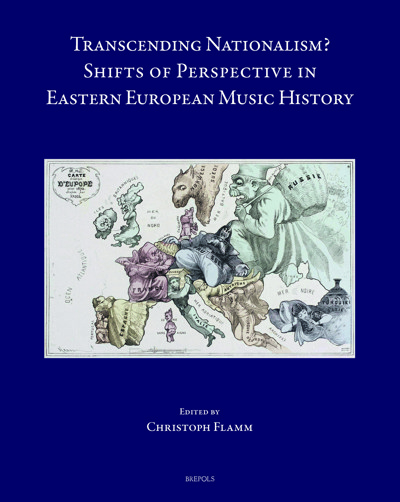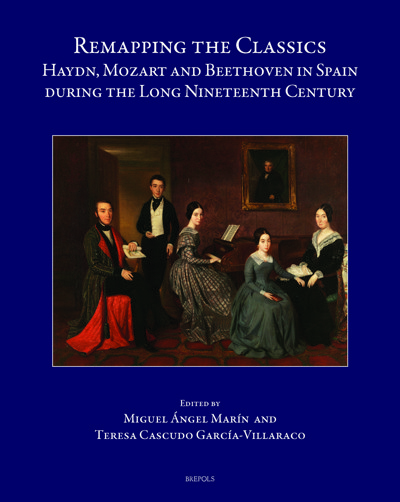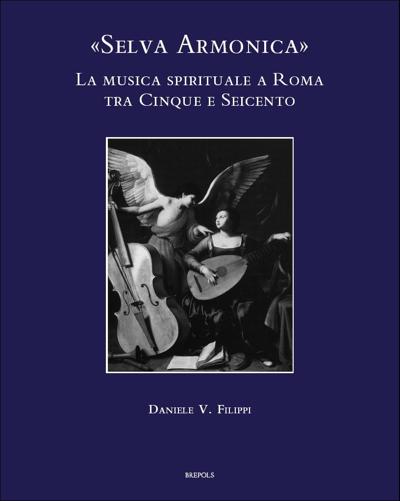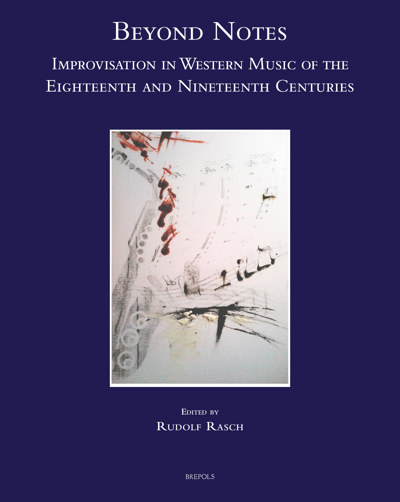
Transcending Nationalism?
Shifts of Perspective in Eastern European Music History
Christoph Flamm (ed)
- Pages: x + 354 p.
- Size:210 x 270 mm
- Illustrations:18 b/w, 2 tables b/w., 31 musical examples
- Language(s):English
- Publication Year:2025
- € 130,00 EXCL. VAT RETAIL PRICE
- ISBN: 978-2-503-61864-7
- Hardback
- Available
This volume aims to reveal nationalistic stereotypes in the European Music at the turn of the 19th to the 20th century, and to place the music back in the transnational complexity and richness of its origins.
Christoph Flamm studied musicology, art history and German language and literature in Heidelberg. He worked on the editorial board of the encyclopedia MGG (1994-2001), then at the Istituto Storico Germanico in Rome (2001-2004). He habilitated at Saarland University with a study on Italian instrumental music in the early Novecento. After professorships in Berlin, Klagenfurt and Lübeck, he has been Professor of Musicology at the University of Heidelberg since 2020. His publications and editions concern mainly Russian and Italian music.
The European music world at the turn of the 19th to the 20th century was characterised by national ideas and nationalistic ideologies. But the reality of the music itself seems quite different: inspiration did not stop at national borders, and composers sought out poetic material and artistic goals outside the traditions of their homeland. It was often music critics and later music historians who put the works and their creators in a strict national context. In Eastern Europe, traditions of national music writing have been particularly well preserved, with effects that continue to this day. The texts in this volume attempt to suggest alternative readings, to reveal nationalistic stereotypes, and to place the music back in the transnational complexity and richness of its origins.
Christoph Flamm, Preface
Christoph Flamm, Beyond the Cage: Rethinking Discourses on Nationalism in Music
I. Blurred Boundaries
Paul Newton-Jackson
Between Regional, National and Cosmopolitan: The Polonaise in North-Central Europe to c.1800
Mirella Di Vita
Between East and West: The Search for ‘Russianness’ in the Vocal Production of Alyab’ev, Varlamov, and Gurilyov
Ryszard Daniel Golianek
Stanisław Moniuszko and the Idea of Polish National Opera in the Context of French Operatic Traditions and Styles
Tatjana Marković
Beyond Nationalism: A Balkan Opera in Perspective
II. Ambiguities
Dagmara Łopatowska-Romsvik
Fryderyk Chopin’s Music in Norway in the Last Decades of the Nineteenth Century: Context and Reasons
Baiba Jaunslaviete
Views of German and Russian Music Critics on Latvian Choral Music (in the Late 19th and Early 20th Century)
Verena Mogl
Symbolism — Theosophy — Socialist Realism: Reinhold Glière’s Journey as Composer
Michael Braun
The Turn to the Archaic as a Legitimation of Modernism: Observations of the Role of Folk Music and Nationhood in Reviews of Bartók’s International Performances
III. Projections
Daniil Petrov
The ‘Organic’ Concept of National Style and Its Consequences: On One Consistent Idea in Russian Thought about Music during the 19th Century
Michael S. Richardson
A Tale of Two Cultures: Crowds, Chorus, and Nationality in Wagner’s Die Meistersinger von Nürnberg and Mussorgsky’s Boris Godunov
Anna Giust
Back to the USSR: Alfredo Casella’s Second Visit to Soviet Russia in 1935
Valentina Sandu-Dediu
From Synchronism to Protochronism: A Brief Survey of Romanian Music Ideologies in the 20th Century
Viktoria Grynenko
A Matter of Context: 20th-Century Violin-Piano Arrangements of Soviet Ballets by Machavariani and Khodyashev
Abstracts and Biographies
Index of Names




